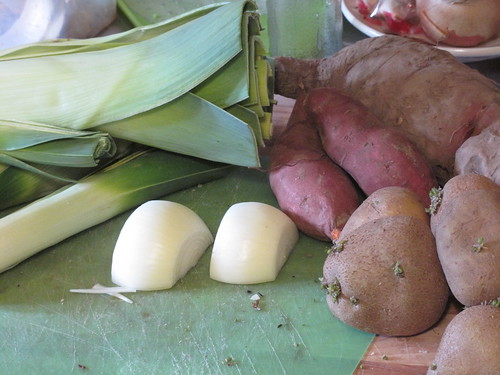Intensive gardening has been around for centuries. Maximizing your food production has always been a goal of farmers and home gardeners. Taking a holistic approach to your planting can give better yield and lower labor. Let the plants do the work for you when possible.
1 Plant to build the soil. Plant non-edible plants that build the soil in the off season to till in in the spring time to build the soil. Or you can intersperse nitrogen fixing flowers in your garden for added color. Most importantly you are building the soil and stealing space from the weeds.
2 Plant to minimize watering. Know your plants. Some plants that like partial shade will do well under your tomato trellis. This will both shade the soil which keeps down the evaporation, and this will compete with weeds. Plant vegetables with deep taproots like carrots to help pull up the moisture from deep and use shallow rooted crop for shade.
3 Plant to maximize pollination. Flowers and vegetables can be added to the garden to attract pollinators and your other plants will get the benefit. You can find some garden vegetables to plant for pollinators here and flowers to plant here
4 Plant to prevent pest and disease. There are many companion plants out there that help prevent pests. Garlic for example helps repel slugs and aphids. So instead of planting a nice row of garlic, plant throughout the garden as long as the other plants get along with garlic.
5 Plant to maximize calories. If you are growing a garden to feed yourself and reduce your grocery bill, look to calorie rich produce like potatoes, sweet potatoes and leeks.
There are so many combinations of plants, coming up with what works in your garden and climate can be a daunting task. You can find a good basic list of companion plants here on wikipedia.
Intensive gardening nirvana is when you design a garden that requires minimal work, the plants help water themselves, fertilize themselves, pollinate and prevent pests in the garden.






No comments:
Post a Comment